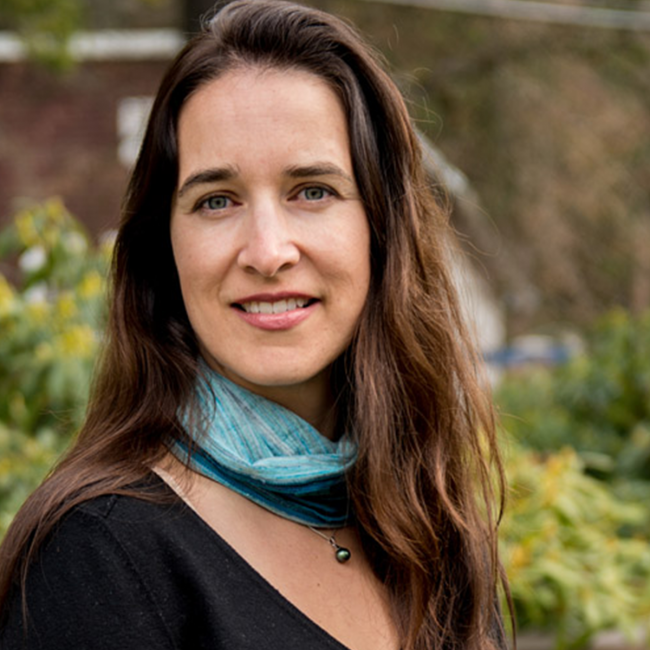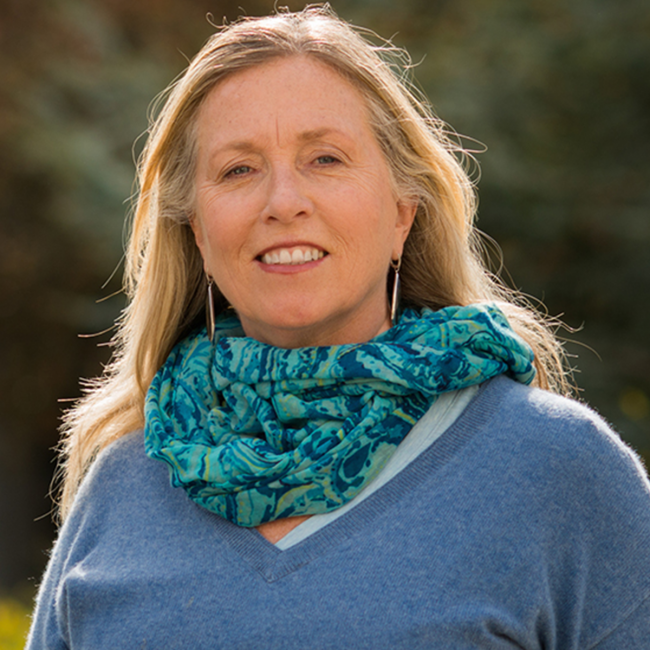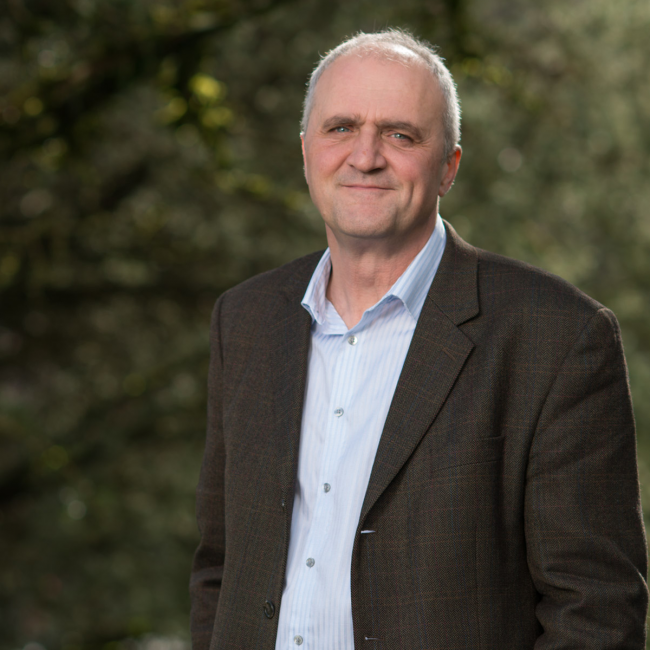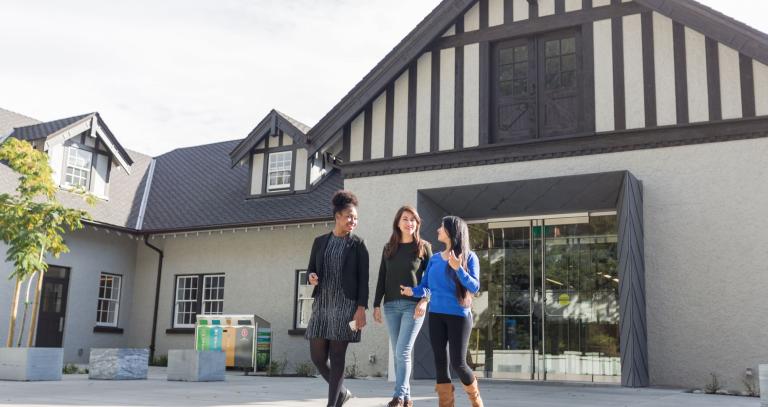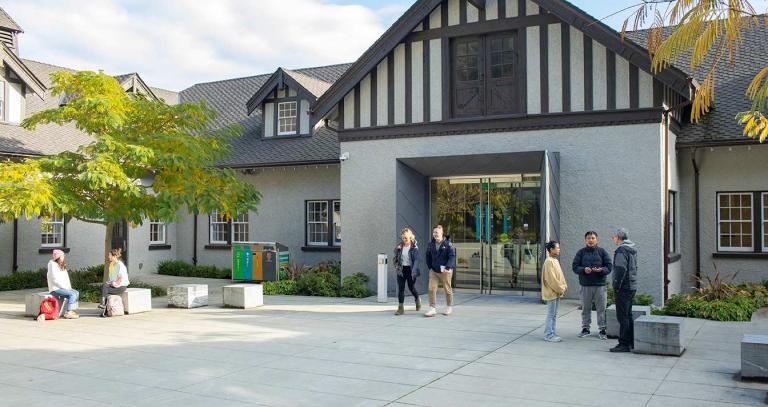Join the global movement tackling the climate crises with ground-breaking solutions through communication, changemaking and leadership.
You feel, as we do, that the climate emergency is the most pressing challenge facing our world. And you know that solving this problem calls for strong leadership. You want to align your educational journey with a meaningful career path.
Delivered through online courses and two virtual learning intensives, you'll use open learning to engage with real-world problems.
Step up to lead change, through the social, political, cultural and economic responses that point to a low-carbon, socially just and climate-resilient future.
Online learning
Mix of online learning and short, virtual residencies to support your professional and personal life.
Expert faculty
Instructors with extensive experience in climate action and sustainability.
Leadership focus
Training in change management to drive climate action.
Upcoming offerings
Stay tuned for updates or contact us for more information.
Lead meaningful climate action & transformation
Learn to lead change through the social, political, cultural and economic responses that point to a low-carbon, socially just and climate-resilient future.
Through this two-year, textbook-free program, you'll gain the tools to integrate climate action in your existing work or launch into a new profession.
Join an international movement of climate action leaders working to change the climate story from a tale of disaster to one of transformation.
Translate climate science into real-world solutions
There's widespread demand for change leadership across sectors. Learn to translate climate science into action to reduce vulnerability, risks and impacts, and create new opportunities for an adaptive, low carbon future.
Develop the knowledge and skills to envision, design and mobilize new solutions to emerging climate challenges.
Gain flexible, personalized learning experiences
This program uses a learner-centred, open learning curriculum that challenges you to tackle real-world problems and generate impactful solutions.
Explore ways to shift behaviours, beliefs and systemic issues that fuel the climate crisis. By focusing on reducing vulnerability and increasing resilience, you’ll contribute to building a sustainable future.
The flexible program design supports your professional and personal learning goals. Sharing your work through blogs and open resources will establish you as a thought leader in your field, influencing change even before graduation.
→ Learn more about how this program is delivered.
Program outcomes
Gain skills in climate communication, climate risk management, building a business case for climate action, design thinking and change management to work in sectors focused on the environment and community development.
Find out more about your learning outcomes.
Learn entirely online
This program is delivered online and includes two virtual residencies.
Your first year offers a built-in 18-credit graduate diploma. Your second year begins with a year-long course, Leading Climate Action in Society, which will be delivered online as a series of seminars and includes the 10-day intensive.
Online learning
Online courses consist of assigned readings, synchronous or asynchronous lectures, interactive discussions, and individual and team assignments.
The program begins with a two-week, non-credit course to prepare you for graduate work, followed by a two-week learning intensive and year-round seminars.
The learning intensive is followed by five consecutive online courses. Each is 10 weeks long and requires approximately 15-20 hours of work per week.
Take part in two required two virtual residencies
First residency (two-weeks): This takes place between 8:30 a.m. to about 4:30 p.m. (PT). It includes 4-5 hours of live sessions, complemented by asynchronous learning activities, like readings, team work and assignments. You will also have homework outside of class hours.
We recommend you make arrangements with work and family for your virtual residencies, which many students say is the highlight of their program.
Second residency (one-week): This takes place at the end of your program as a capstone summit or conference. It involves guest speakers, student presentations, and engaged discussions and activities.
You'll engage in a range of synchronous (e.g., presentations, panels) and asynchronous (e.g., pre-readings, assignments) learning activities with about 3-4 hours synchronous activities most days.
Choose from two completion options
Option 1: Scholar practitioner (research)
Conduct climate action research and produce an individualized research project with the guidance of your instructors. Enroll in a 12-credit research thesis course, which is 52-weeks long and takes place online.
Option two: Practitioner scholar (applied)
With these options, you'll learn to translate and assess climate risk and resilience. Develop a learning portfolio tailored to your specific interests, through an internship or coursework.
Internship: Choosing an internship allows you to get practical experience, and shape one additional elective to finish your degree.
Coursework: Choosing this pathway includes taking three elective courses to finish your degree. With approval, some of these courses can be completed at other institutions, can include relevant graduate certificates, or can be crafted from other applied and experiential learning opportunities.
Courses
Faculty
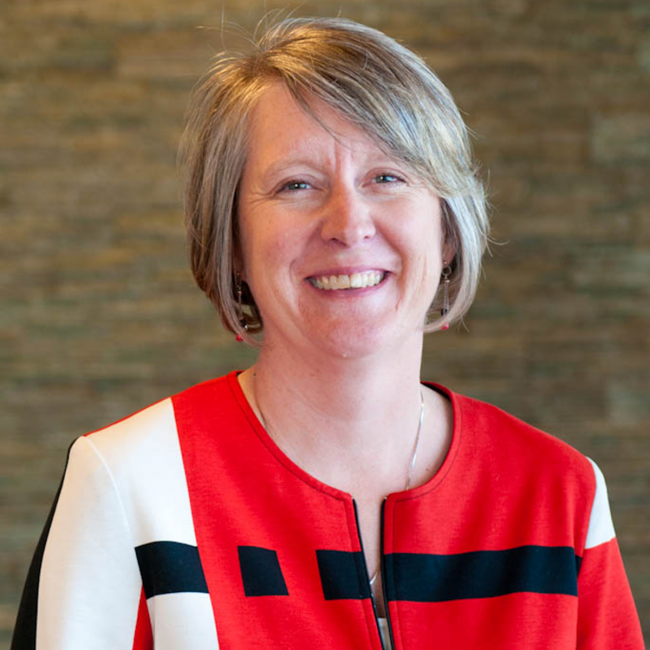
Associate faculty
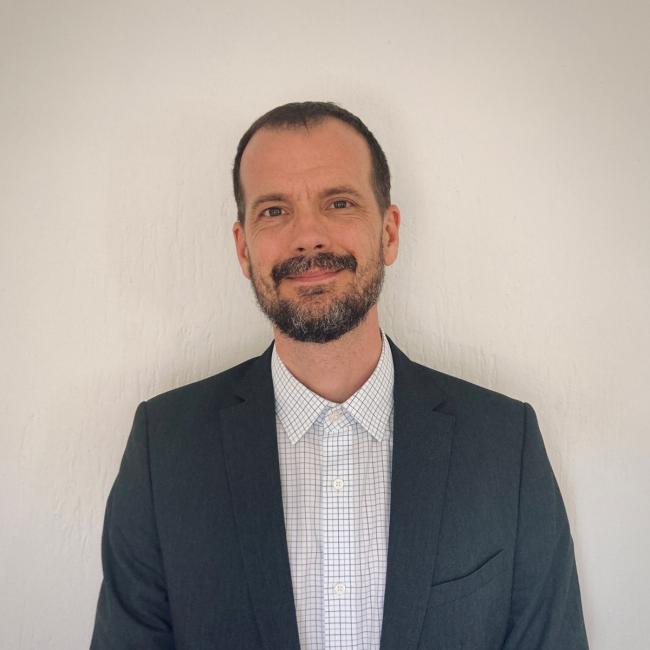
Associate faculty

Associate faculty
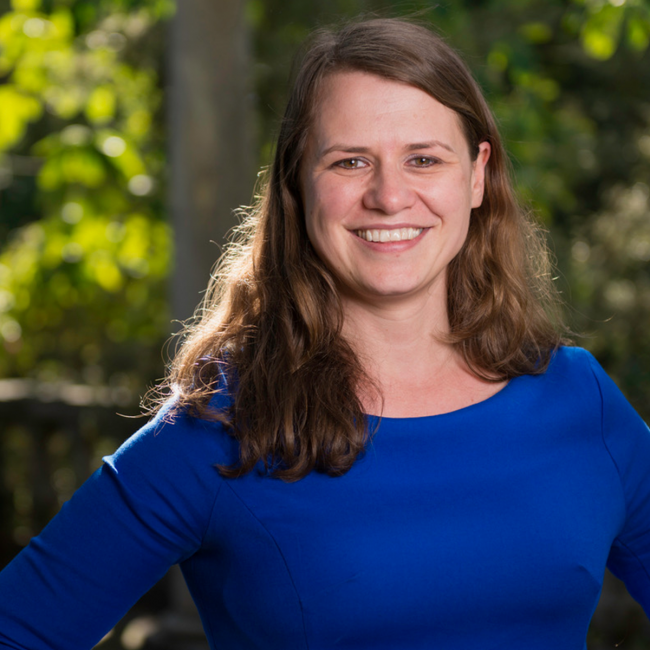
Associate professor

Associate faculty
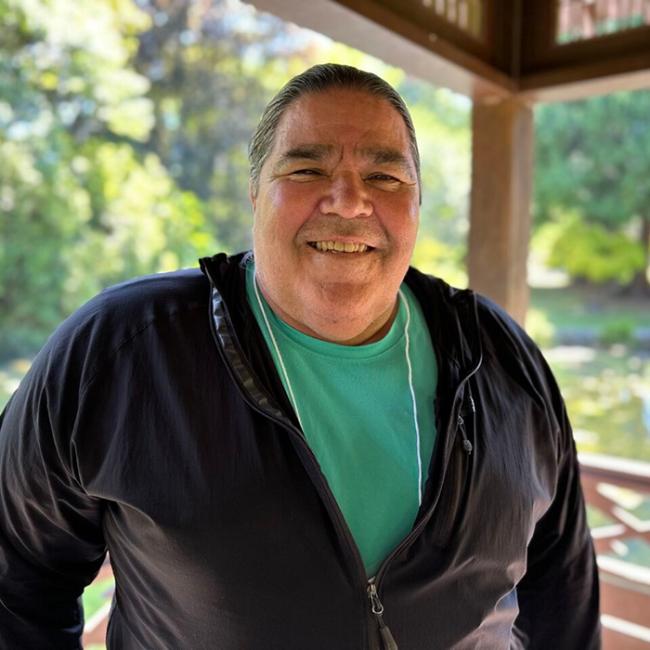
Associate faculty
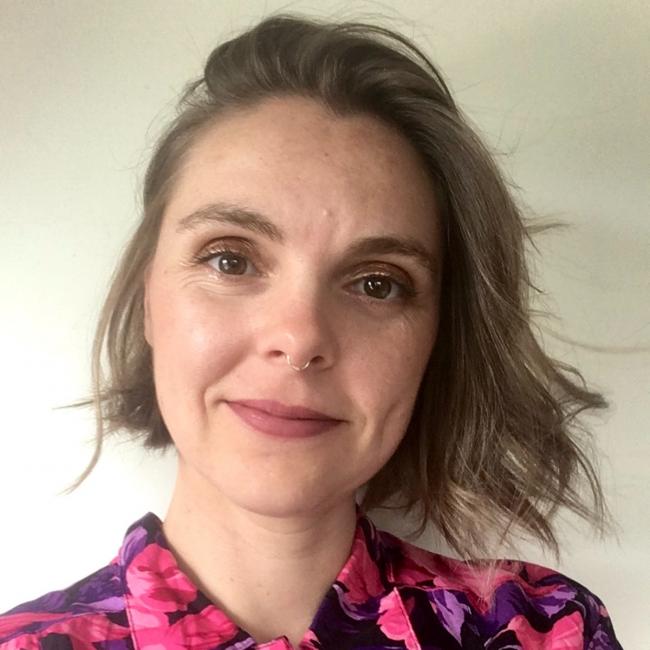
Associate faculty
Transfer agreements
Refine results
Admission Requirements
At Royal Roads University, the real-life leadership experiences that students bring to the classroom serve to enhance everyone’s learning. Admission to this program is assessed on a case-by-case basis, considering all aspects of the applicant's work and life experience, volunteer and community activities, practical experience, related training and formal education. Given the distributed and emergent nature climate change related work, experience in most sectors of employment is considered relevant.
Relevant leadership or management experience could include one or more of the following:
- Formal organizational leadership roles in which you directly supervise staff or complete performance-oriented work with individuals, groups, or teams.
- Leadership roles in volunteer organizations.
- Roles in which you consult, negotiate with, or manage diverse interest groups through relationships, in a complex environment.
- Roles in which you lead others toward shared goals and outcomes.
- Roles in which you influence, organize, and coordinate groups of people.
- Overcoming a challenging life experience (for self or others), which involved navigating complex systems and resulted in positive community change beyond the individual.
We invite applications from established and emerging leaders who bring a range of professional experiences to the cohort setting. Emerging leaders who do not meet the minimum requirement for leadership experience but who can demonstrate exceptional leadership potential through their professional and life experience will be considered.
Applicants are required to address how they consider their work, academic, and leadership experience to be relevant and related to the focus of the program within their resume and personal statement responses.
Standard admission
- Four-year (or comparable) undergraduate degree with a minimum GPA of 'B' (3.00/4.33), from a recognized post-secondary institution.
- A minimum of two years of relevant leadership or management experience.
- Academic writing and critical thinking skills are required for success in this program. Applicants who have been away from academic writing for more than 10 years will normally be required to take “Academic Writing and Critical Thinking", with a minimum passing grade, prior to commencing the program.
Flexible admission
Applicants who do not meet the Standard Admission Requirements will be considered for Flexible Admission and assessed as follows:
- Normally, a minimum of five years of work experience which includes at least two years of relevant leadership or management experience.
- Normally, flexible admission applicants will be required to complete "Academic Writing and Critical Thinking", with a minimum passing grade, prior to commencing the program.
English language proficiency
- If English is not your primary language, please review our English language requirements.
All applications to this program require submission of the following information and supporting documents before your file can be assessed for admission:
Application form
In order to apply online, you will be required to create a log-in account using your email address. You will be required to list all credit courses and/or programs you have completed or are currently enrolled in. An application fee will be required. If your application fees are being paid by a third party, review sponsored student information. Once submitted, you may check the status of your application at any time.
Missed your application deadline? While we can’t make any guarantees, we may be able to accommodate late applications if there's still space and enough time to process. If you're interested in an intake that is now closed to applications, apply for the next available intake and email Admissions with your preferred start date. Make sure you’re prepared to submit your program's required documents right away. We can't make an admissions decision without them.
Official transcripts
Applicants are responsible for arranging for the submission of official transcripts from ALL post-secondary (higher education) institutions currently or previously attended, for all credit courses and/or programs. Transcripts are not required for non-credit programs or courses, though some programs may require proof of professional certifications or designations.
Transcripts are considered official only if submitted directly by the Registrar or other recognized authority of the providing institution in the institution's original, sealed envelope. If the envelope has been opened, the transcripts are no longer official and new (official) transcripts will be required to complete your application.
All international transcripts or credentials are subject to an international transcript and/or credential evaluation.
Personal statement
Your personal statement should outline educational, work, and leadership experience, personal and career goals, and discuss alignment between these and the focus of the program within your resume and personal statement responses. Your statement should outline your motivation for seeking entrance to the program. The statement should address the topic of how the Master of Arts in Climate Action Leadership will contribute to your future career. Relate this to who you are, what you feel you will gain from the program, and the strengths you feel you could bring to the program. Consider the following questions as you craft your statement.
- Why do you wish to enrol in this program?
- How is this program relevant to your career goals?
- What experience (academic courses and/or training, work experience) have you that directly relate to the learning outcomes of the program?
- What experience have you had with distance education and self-directed study?
- What relevant strengths or competencies (knowledge and skills) would you bring to the program?
Detailed & structured résumé
A detailed résumé provides the Admissions Office with as much information about your work and life experiences as possible. We are interested in knowing where you have worked, for how long, and what you were responsible for in the positions you held. Provide as much information as possible, with special attention to the past ten years of your career. We would like to see:
- Any education (post-secondary, degrees, diplomas, certificates, professional development courses, training, professional certification) you have achieved;
- Work experience (paid, voluntary/unpaid) detailing the name of the organization, position, length of service and a brief description of responsibilities;
- Professional associations, memberships, and affiliations;
- Comfort and experience working in the online environment and with common programs or apps (e.g., Microsoft Word, Wordpress).
Letters of reference
Two letters of reference are required; one reference letter should be based on work experience and the other based on academic performance.
These letters should speak to your ability to succeed in a graduate program and in this area of focus on climate change. These documents can be written in a variety of formats. In essence, we expect the writer to confirm that you are a suitable candidate for the program, explain why s/he believes you will succeed in such a program, and describe how the program will benefit you. The context in which the referee has come to know you should also be mentioned.
If applicable
- Applicants declaring permanent resident or Convention Refugee status in Canada must submit a copy of their Permanent Resident Card (PR card) along with their application.
- Transcript evaluation fee or credential evaluation report, if submitting international transcripts.
- An official English language proficiency score report or other evidence of proficiency if English is not your primary language.
- Other information or documents may be requested to determine your eligibility.
For information on how and where to send your supporting documents, please refer to the document submission guidelines.
Financial aid and awards
Refine results
Learning outcomes
Climate adaptation and resilience science
- Learn how to evaluate and apply the core concepts of climate adaptation and resilience theories and practices.
- Use evidence-informed strategies to design and develop risk-informed adaptation plans and initiatives.
- Develop an acute understanding of climate science, climate-risk assessment and management.
- Identify and explain how equitable climate-action planning, policies and implementation are in alignment with national and global frameworks (e.g., Sustainable Development Goals, UN Declaration on the Rights of Indigenous Peoples).
- Creatively and critically synthesize ideas, actions and interconnections across multiple disciplines.
- Tackle complex climate-related problems and develop ground-breaking solutions using various evidence-based frameworks.
- Examine and situate personal beliefs in context to knowledge.
- Cultivate advanced problem-solving, facilitation, co-ordination and communication skills.
- Demonstrate openness to contributions from multiple disciplines and worldviews.
Systems and futures thinking
- Creatively and critically synthesize ideas, actions and interconnections across multiple disciplines.
- Tackle complex climate-related problems and develop ground-breaking solutions using various evidence-based frameworks.
- Examine and situate personal beliefs in context to knowledge.
- Cultivate advanced problem-solving, facilitation, co-ordination and communication skills.
- Demonstrate openness to contributions from multiple disciplines and worldviews.
Research literacy
- Draw upon scholarly and practitioner-generated evidence to inform arguments, choices and practices.
- Combine research methodologies, concepts and theories to examine a range of challenges and solutions in climate adaptation and low-carbon resilience.
- Evaluate the rigour and validity of research through a critical lens.
- Identify and explain the core concepts and constructs of research.
- Recognize the use, limitations and strengths of theoretical frameworks in the field of climate adaptation.
- Become a producer of new knowledge and practice.
Adaptive leadership
- Develop knowledge and skills relevant to leadership in the context of uncertainty and risk.
- Develop vital self-awareness and self-reflection skills and apply them to understanding how values and experiences influence the ability to lead.
- Recognize the opportunities and barriers to leading change in organizations and communities.
- Strengthen and refine personal leadership style.
- Facilitate multidisciplinary discussions and collaborations.
Climate communication
- Effectively communicate ideas and arguments related to all forms of social, political, environmental and economic issues in verbal, written and digital mediums.
- Develop and refine a digital presence to contribute to and shape the field of climate adaptation.
- Engage with a range of stakeholders, including public, professional and government.
- Gather, synthesize, organize and translate knowledge for use by a wide array of stakeholders.
- Apply design thinking processes to explore, implement and lead change and innovation across all systems and sectors.
- Improve professional practices and policies while collaborating with a diverse array of stakeholders.
- Integrate research and creative problem-solving methodologies, concepts and theories to examine a range of challenges and solutions for enacting change.
- Apply creative, lateral and future-based thinking to climate adaptation.
Innovative changemaking
- Apply design thinking processes to explore, implement and lead change and innovation across all systems and sectors.
- Improve professional practices and policies while collaborating with a diverse array of stakeholders.
- Integrate research and creative problem-solving methodologies, concepts and theories to examine a range of challenges and solutions for enacting change.
- Apply creative, lateral and future-based thinking to climate adaptation.
